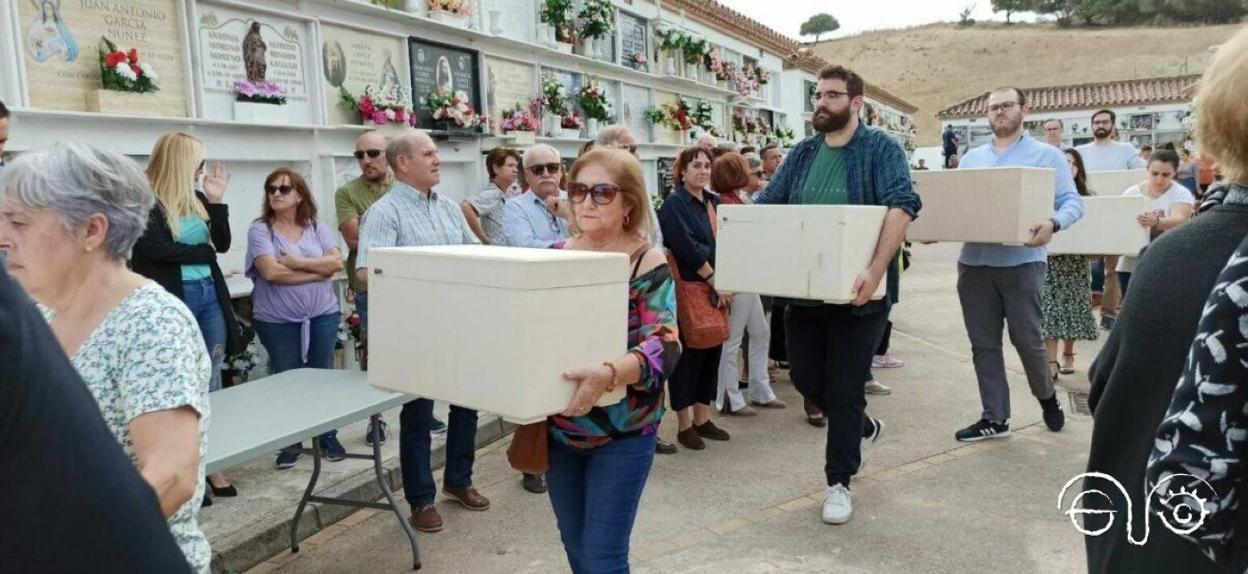Village pays tribute to 19 victims of Franco years in moving reburial
Due to delays at the laboratory, the identities of the remains in Jimena de la Frontera have not yet been confirmed
DEBBIE BARTLETT
Friday, 4 November 2022, 13:14
Last Sunday about 200 people from Jimena de la Frontera, in Cadiz province, gathered in the cemetery for an event which was very special for them: the burial of 19 victims of Francoist repression whose remains had been recovered from mass graves in the old cemetery in the castle grounds, during exhumations which were carried out in 2020 and 2021. They had been killed during the Civil War and the dictatorship which followed.
It was a poignant moment for the people who knew that their relatives had been among those whose bodies were somewhere in the castle cemetery because this was something they had been hoping would happen for years. However, they still had no idea whether the 19 people who were being buried in a block of niches which had been built especially for them were their family members or not.
This is because, although the relatives had supplied DNA samples when the exhumations first began, they have still not had the results from the laboratory in Granada University, which is responsible for analysing the victims' remains and seeing whether there is a DNA match which will help to identify them.
The reason for the delay is that this is currently the only laboratory in Andalucía assigned to carry out this work, as well as its normal duties. As more exhumations of victims have been authorised in the region in the past few years, the backlog is large and it could take another year before families in Jimena receive the results.
Once their identities are known, the families of the 19 people buried on Sunday will be able to decide whether or not to move them to another resting place.
Sunday's tribute was organised by Jimena de la Frontera council and the Forum for Historical Memory of the Campo de Gibraltar.
It is known that 117 people from Jimena were victims of Francoist repression and at least 40 were buried in mass graves in the cemetery; three of those graves, containing these 19 bodies, were found during the exhumation works.
The tribute was also attended by Juan Lozano, the president of the Mancomunidad de Municipios of the Campo de Gibraltar, Lucía Trujillo, who is responsible for historical memory at the Diputación de Cadiz provincial authority, and archaeologists and volunteers who had carried out the exhumations, among others.
The mayor of Jimena, Francisco Gómez, read out the names of all the local victims and said it was a great shame that it had taken the authorities this long to reach the point where they could be given a dignified burial. Lucía Trujillo, in an emotional speech, expressed support for the families and said the Diputación will never stop assisting the search for more victims.
